Transforming lives in Vietnam through community-based initiatives
IMAGES BY DESIREE MOSTAD
WORDS BY TAMARA BLAZQUEZ HAIK
EDITED BY CHRISTINE PICKERING
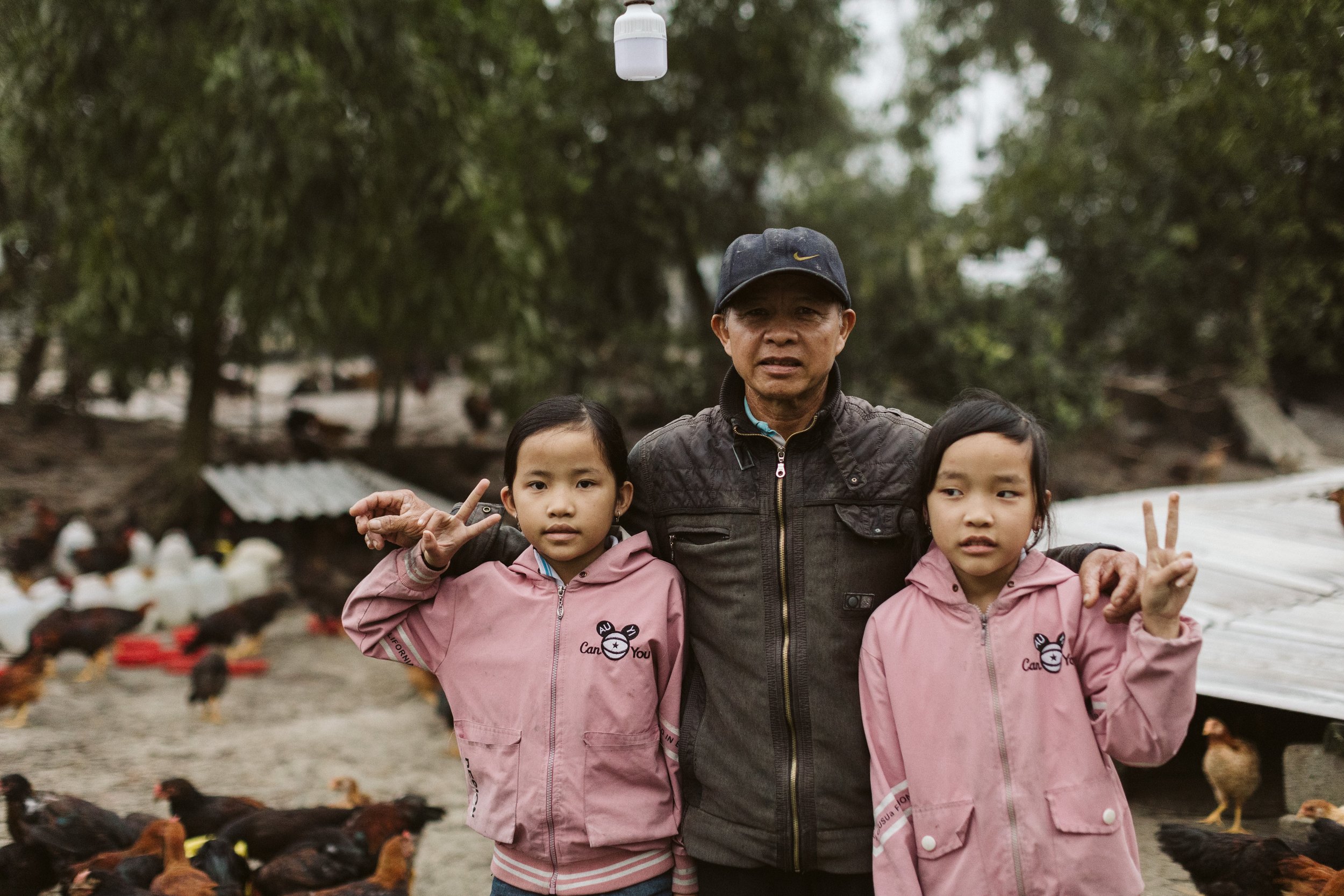
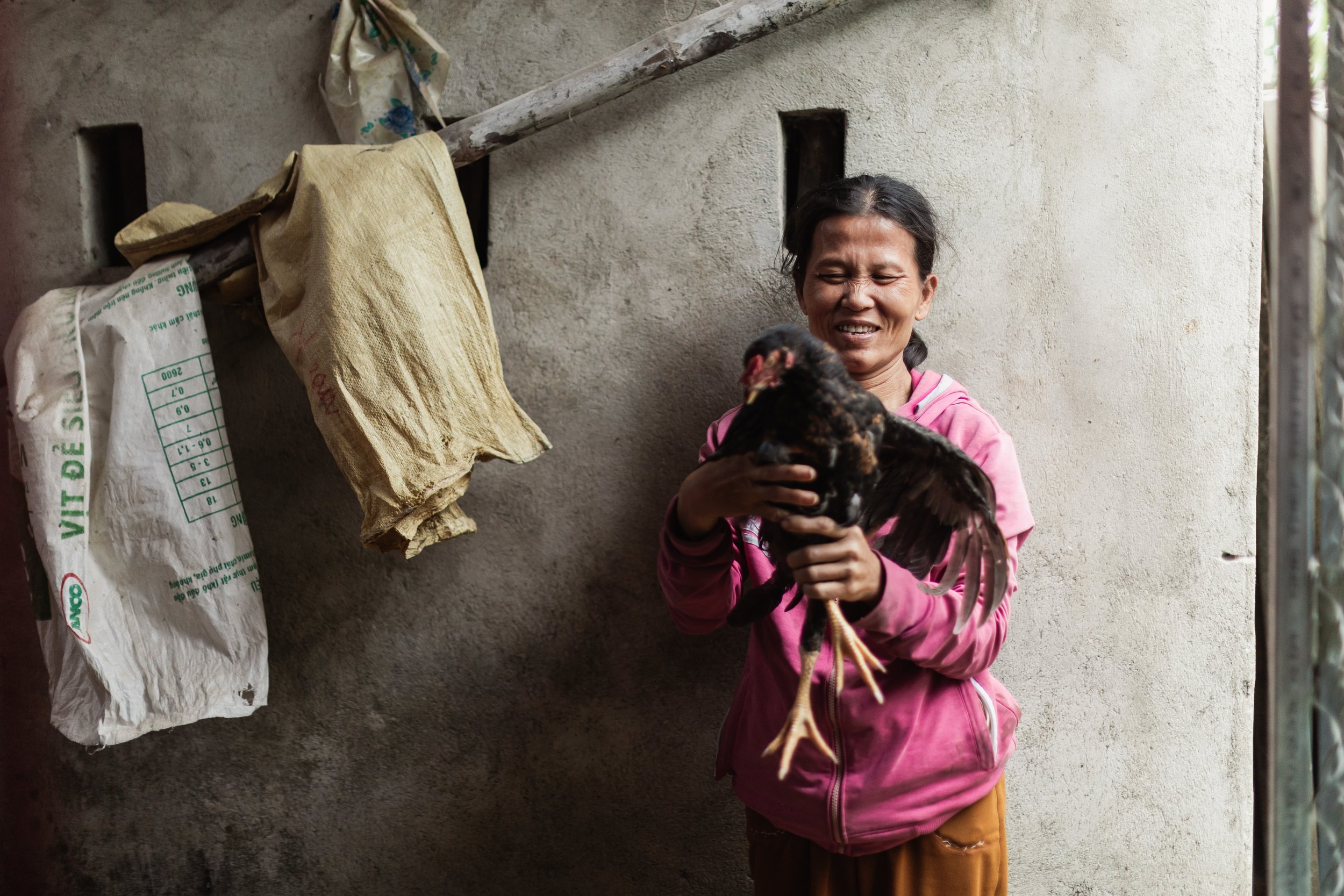
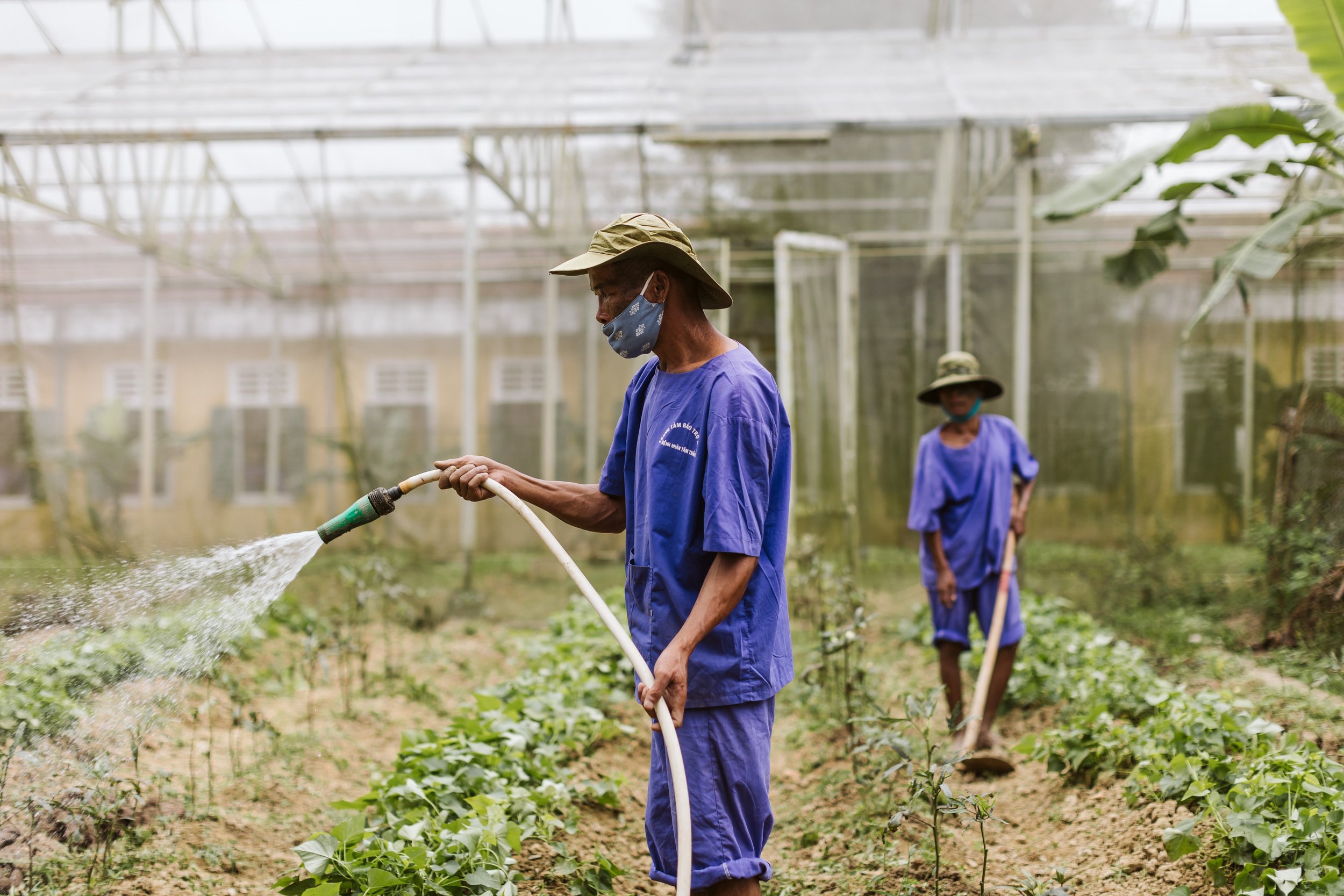
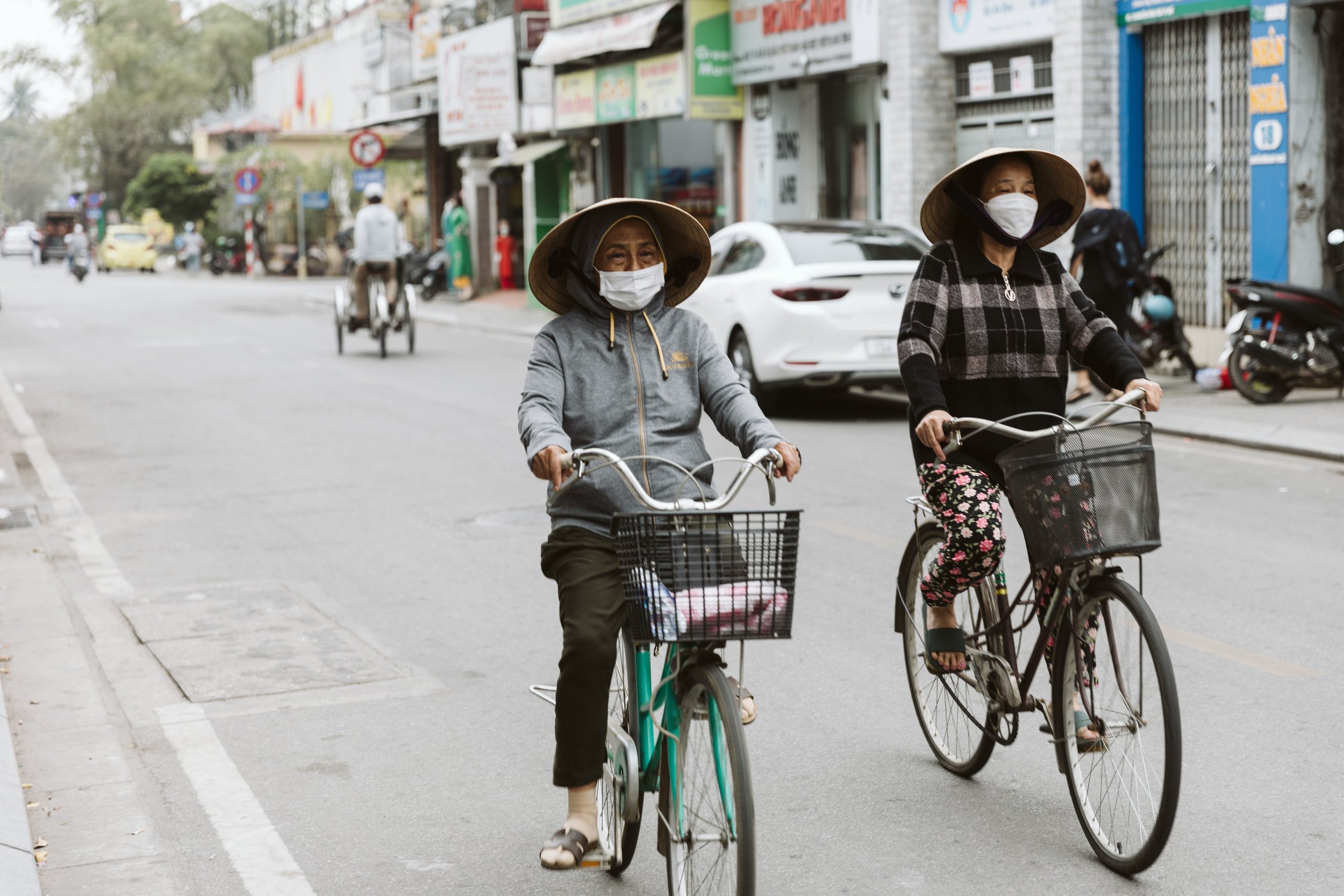
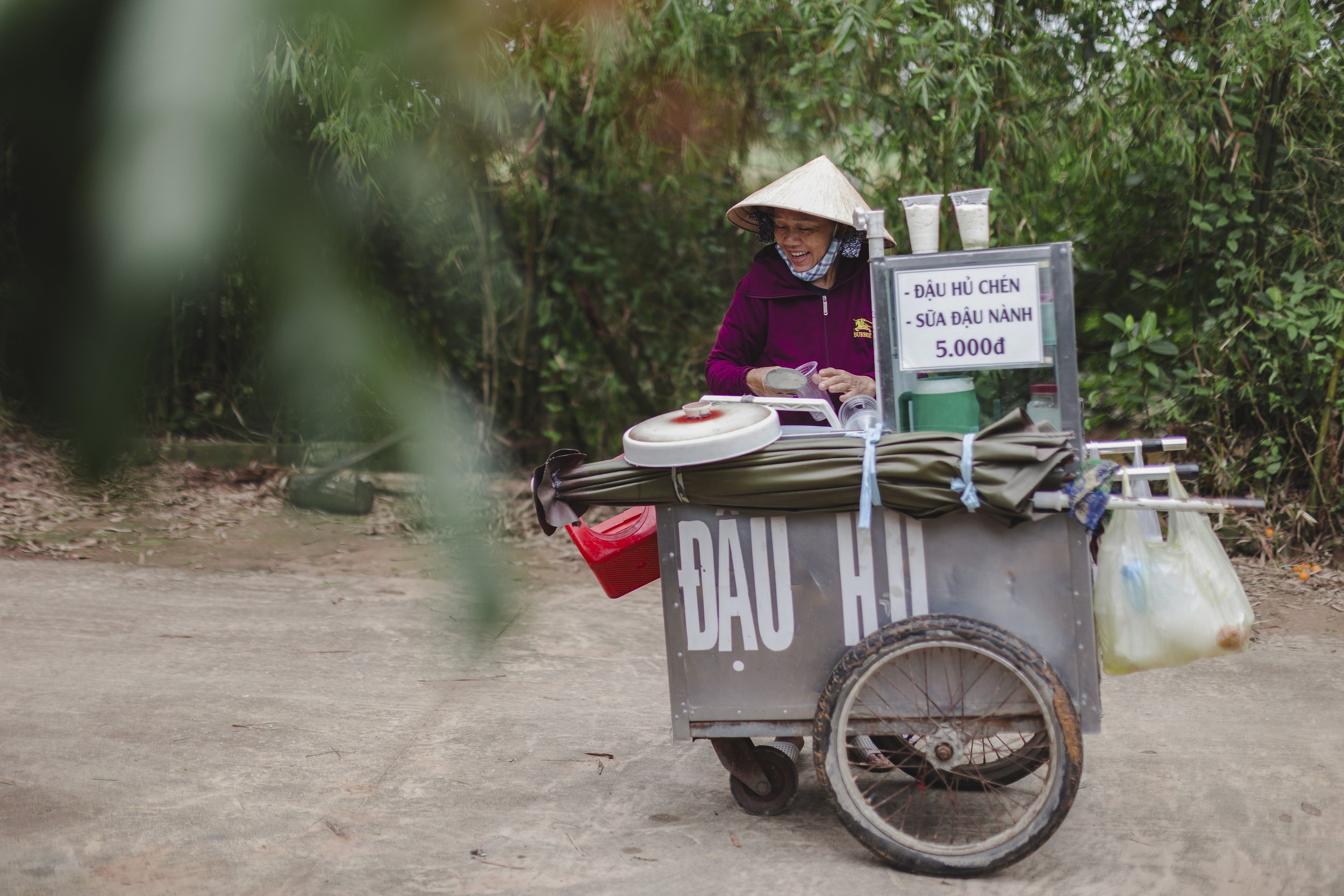
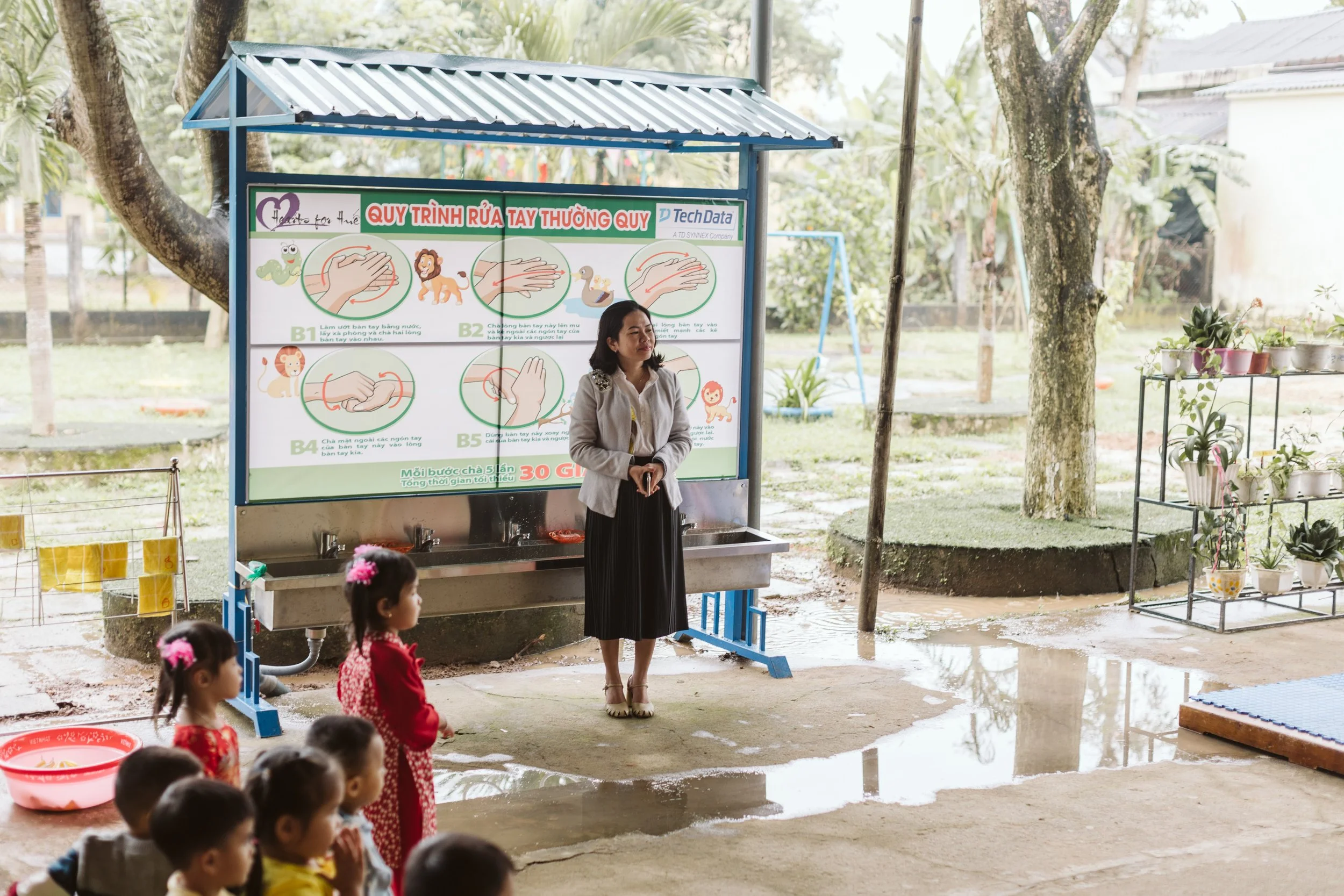
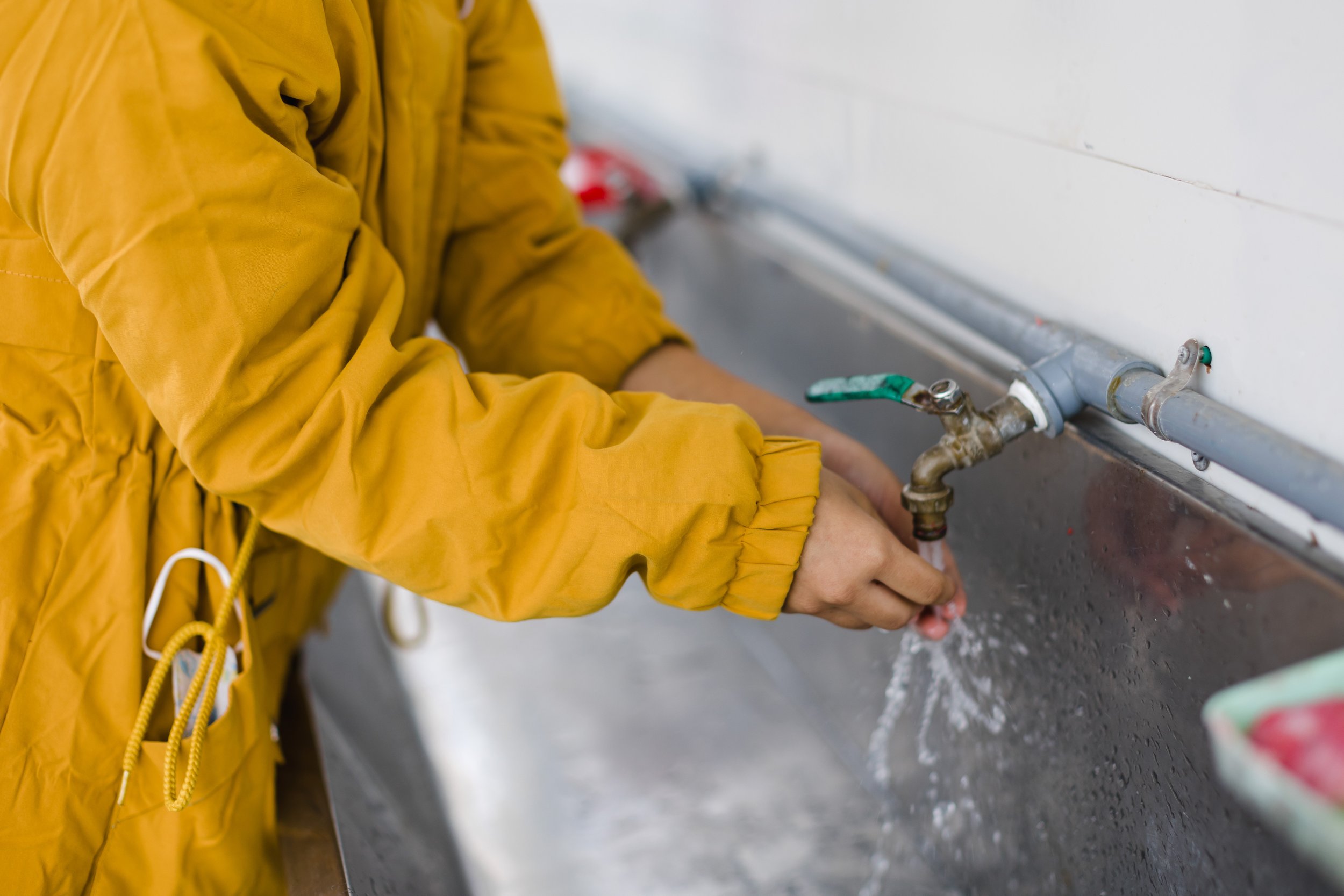
Once the imperial capital of Vietnam, Hue city in the Thua Thien Hue coastal province, has become one of the leading cities in poverty reduction in Vietnam thanks to the country’s rapid economic growth. However, a vast majority of Vietnamese families still remain economically vulnerable, located in rural and isolated areas where public services and infrastructure are underdeveloped.
Women sell tea and other food outside Thien Mu Pagoda, an iconic seven-story Buddhist temple. It is regarded as the unofficial symbol of the city of Hue.
The communities around the city of Hue are no exception, and families still struggle to get fresh water, as well as access to sanitary wastewater systems. Additionally, more than 12 million people in Vietnam are living with disabilities, preventing them from working and providing for their families while also lacking any kind of access to or support with cultivating the land or engaging in other means of production.
Hearts for Hue (H4H), a community-based NGO, aims to address these many challenges. The organization was born in 2007. The founders, Truong Trong Khanh and Nguyen Thi Hoa, had seen the harsh realities that many local families and communities around the city faced on a daily basis and were inspired to create change. Since its inception, H4H has been on a mission to improve people’s quality of life through education, health care, sanitation and livelihood support programs.
Ms. Cuc sits inside her kitchen holding two chickens she raised from the Chicken Coop Program with Hearts for Hue. Behind her, tofu is cooking which she sells along
with green tea at the market every day.
“1 in 9 people in the world lack access to safe water and 1 in 3 people lack access to a toilet. Resettled communities around Hue still lack basic access to fresh water and proper water sanitation practices.”
One of these programs focuses on people living with a disability, as well as families affected by Agent Orange. This toxic herbicide was used by the U.S. military for vegetation control during the Vietnam War, and it caused severe damage to vital organs, cells, the immune system and hormones in the millions of people who were exposed to the contaminant. To this day, many Vietnamese people still experience the negative impacts of this wartime mass spraying. But through the H4H program, participants learn how to raise and sell farm animals, such as chickens, which creates a viable livelihood and a sustainable income for them.
Nguyen Vinh Tuong was one of the first villagers that received an education by H4H, funded by Rotary International, on raising chickens. H4H’s founder went to Tuong’s house for the three months of training, and afterwards, he received 100 chickens while a chicken coop was built for him. He now has a flock of 3000-5000 chickens, which he tends to with the help of his daughters.
Featurette of Nguyen Vinh Tuong, a chicken farmer in Hue who has benefitted from H4H’s programs.
Many children in Hue’s rural settlements are forced to drop out of school to help out at home or with farming—or because they cannot afford school fees. For H4H, “education is the key for a brighter future. We strongly believe that education along with support and motivation are the ways to transform a life from poverty to prosperity.” That is why the NGO provides children from economically disadvantaged families with scholarships that cover some school costs. This program, funded by VESAF and individual donors, also supports graduates of high school and above to find other scholarships that will allow them to further their education.
Girls who live on Con Hen Island practice reading an English book during Motorbike Book Club.
Additionally, H4H, with the support of the DOVE Fund, PiCCA and VESAF, has provided many of the schools around Hue with washing stations. Desiree Mostad, who photographed this story, notes that “the old facilities in schools were grim with few sinks and hand-washing areas, and due to the lack of sanitation, many children suffered from illnesses.”
Another important focus of Hearts for Hue is on volunteering and how it encourages people to engage with their community. They recruit local university students and other community members, as well as patrons from abroad and Vietnam War veterans from the U.S., to assist with the NGO’s programs. As a result, students learn more about their local communities—and all volunteers gain lifelong skills. “I was able to play and read with some kids and I asked some of them what they wanted to be when they grew up,” recounts Desiree. “Interestingly enough, the answers were the same as in Western countries: a doctor, police officer, and even a YouTuber.”
Tay Xuan kindergarten kids playing and learning in the school courtyard.
Hearts for Hue has also partnered with Rotary International to implement clean water projects that consist of building water access systems and hygienic latrines. As well, these projects teach families in the Thua Thien-Hue province about water conservation and sanitation. According to H4H, “1 in 9 people in the world lack access to safe water and 1 in 3 people lack access to a toilet. Resettled communities around Hue still lack basic access to fresh water and proper water sanitation practices.”
Girls show off their clean hands after using the handwashing station at the Quang Phu school.
Even though H4H supports the families in the settlements around Hue, their main goal is for these families to become self-sufficient. Truong Trong Khanh continues to work hard to grow the many programs H4H implements to empower these families. This is an ongoing challenge but a necessary one; as Desiree reflects on her experience, she points out that people need to understand “the profound impact that community-focused initiatives can have on transforming lives and fostering lasting change.”
To learn more about and support Hearts for Hue, visit their website. To learn more about Desiree Mostad’s work, visit her website.
Carrying dishes and supplies to be washed through the streets on Con Hen Island. Many women on the Island have no stable job with a low income ($3USD/day). Families
on Con Hen Island live tough lives due to extreme flooding every year.











